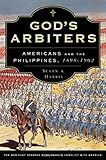Support H-Net | Buy Books Here | Help Support the NBN and NBN en Español on Patreon | Visit New Books Network en Español!
- African Studies
- African American Studies
- American Politics
- American Studies
- American South
- American West
- Asian American Studies
- Australian and New Zealand Studies
- British Studies
- Canadian Studies
- Caribbean Studies
- Central Asian Studies
- Chinese Studies
- East Asian Studies
- Eastern European Studies
- European Politics
- French Studies
- German Studies
- Iberian Studies
- India Studies
- Indian Ocean World
- Iranian Studies
- Irish Studies
- Israel Studies
- Italian Studies
- Japanese Studies
- Korean Studies
- Latino Studies
- Latin American Studies
- Mexican Studies
- Middle Eastern Studies
- Native American Studies
- Pacific Studies
- Polish Studies
- Russian and Eurasian Studies
- Southeast Asian Studies
- South Asian Studies
- Turkish Studies
- Ukrainian Studies
- Western European Studies
- World Affairs
- Animal Studies
- Anthropology
- Archaeology
- Business, Management, and Marketing
- Media
- Critical Theory
- Disability Studies
- Drugs, Addiction and Recovery
- Education
- Economics
- Finance
- Geography
- Gender Studies
- Genocide Studies
- Higher Education
- Human Rights
- Journalism
- Language
- Law
- LGBTQ+ Studies
- National Security
- Philanthropy
- Philosophy
- Policing, Incarceration, and Reform
- Political Science
- Politics & Polemics
- Public Policy
- Sex, Sexuality, and Sex Work
- Sociology
- Sound Studies
- Sports
- Urban Studies
- Big Ideas
- Celebration Studies
- Co-Authored
- Cover Story
- Historical Materialism
- History Ex Silo
- Interpretive Political and Social Science
- Invested Investor
- Landscape Architecture
- Late Antiquity
- Mormonism
- NBN Book of the Day
- NBN Seminar
- Postscript: Conversations on Politics and Political Science
- Practical History
- Preparing for Life After Grad School
- Psychology and Climate Change
- Syriac Studies
- The Chair: In The Room at the Fed
- New Books with Miranda Melcher

Aug 15, 2011
Classics and Imperialism in the British Empire
Summary
The Greco-Roman world was the prism through which the British viewed their imperial efforts, and Mark Bradley's compendium Classics and Imperialism in the British Empire (Oxford University Press, 2010) explores the various ways in which this reception of the classics occurred. From museums, to oratorical texts, to theories of race, the classical world was a reference point for the imperial British. Bradley's book looks at how the British thought about the classical world at a time when they were confronted by their own role as empire builders.
There was the desire to reinforce, to justify their claims to being the greatest imperial power after Rome. There was doubt; the need to reconcile the colonized to their rule even as they learnt how ancient Britons had resisted Roman rule. There was a certain humbled pride that they had managed to supplant the Romans insofar as claims to being the 'greatest imperial power' were concerned. There was also puzzlement; the jewel in the crown, India, was nothing like any Roman province or territory-how did this place them in relation to the Romans, who after all went about subjugating 'barbarians' as opposed a people with a highly sophisticated civilization of their own? These are some of the issues that concerned the Britons of the Empire, and that this book analyses with great sensitivity.



































































































